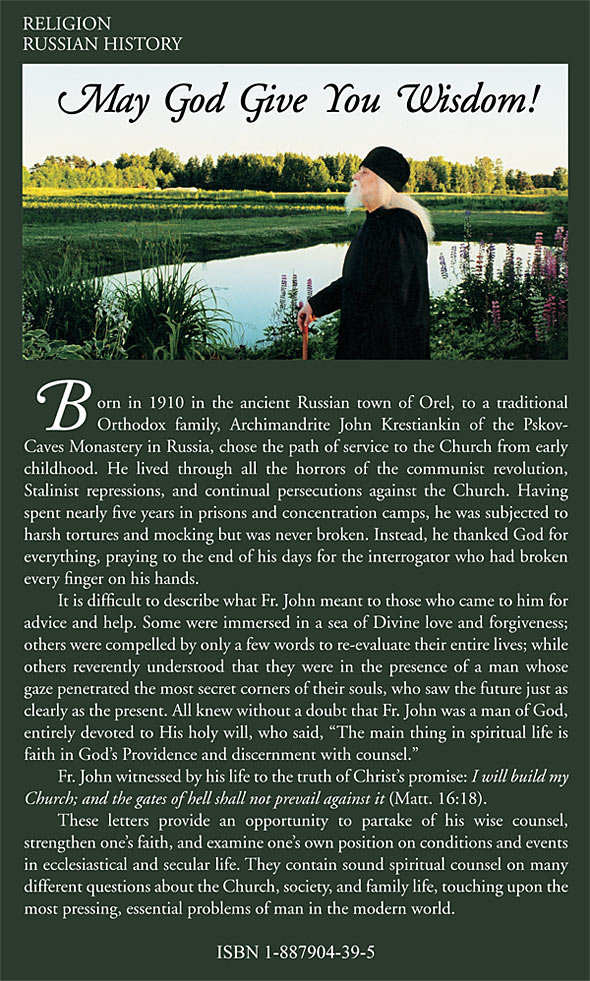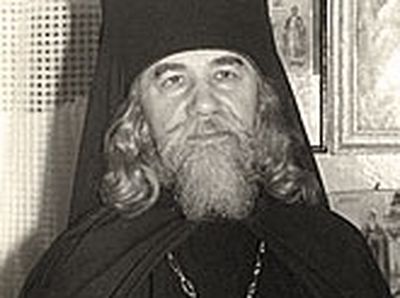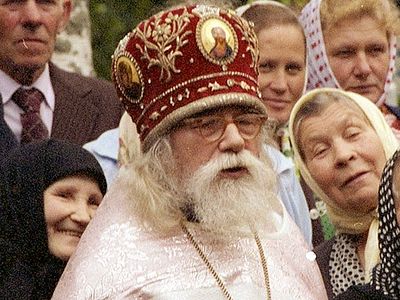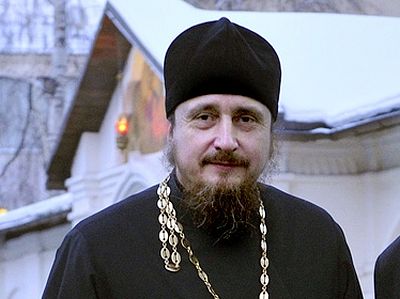
On the Work of a Pastor
Jesus Christ, the same yesterday,
today, and forever
(Heb. 13:8)
Pastorship[1] is one of the great treasures of salvation, granted and blessed by Christ through His Holy Church.
I am the good shepherd, and know my sheep, and am known of mine … and they shall hear my voice; and there shall be one fold, and one shepherd (Jn. 10:14, 16).
And they have gone, and go even now, and save themselves, embodying God’s will in life. God’s Church and God’s world were created by instructorship, preaching, and pastorship. God’s Church lived in unity of spirit and peaceful union.
The Church grew and flourished during the centuries of the great ecumenical teachers, Holy Fathers, holy elders, martyrs, and the people of God. Obedience to the Church and its Fathers formed the great work of mankind’s salvation. The voice of truth, heard and received by the heart, continued the truth of life, while the reply and reward for this truth was the gift of God – piety shown forth in its great strength.
What nourished the truth of life? What fed and raised up people of spirit, strength, and courage?
First of all, faith in God the Creator and Provider; second, love for God and awareness of His boundless magnificence and goodness; together with the humble awareness of one’s ultimate infirmity and inadequacy.
The great ideals of purity and holiness gave birth to the desire to live and labor in the name of these ideals, and humility rewarded those laborers with strength from God and their perfection.
Faith, love, and humility were the sure guides of those people in the swirling sea of life, leading them into true life, sincerity, and simplicity.
The people of God lived in one spirit with their pastors, with one and the same understanding and yearning for salvation. The power to bind and loose, given to father confessors by the Savior, bound them with the great responsibility for the souls of their flock, enabling their formation, and not their destruction.
The terrible words of the Apostle, This know also, that in the last days perilous times shall come (2 Tim. 3:1), were a kind of allegorical image that had not yet insinuated itself into life in all its force and calamity. But now with unimaginable rapidity, in all spheres of life, especially in man’s soul, unbelief, hatred, and demonic pride have grown out of control, and brought their offspring with them: lies, cunning, and deception, which have distorted life. As the result of these new norms, troubles, disturbance, and confusion have appeared in life. They have even reached the Church in the form of heresies and schisms; they have encroached upon the relationship between pastors and their flocks as hitherto unknown spiritual ills.
In looking at all that is happening in the world, in our country, in the Church, and in ourselves, there certainly is enough to depress us, if it were not for the eternally living, unchangeable, and life-confirming Divine promises and truths which show us our life’s goal – the search for the eternal, living God. The goal is unchanging, unchanging also is service to God, His holy Church. Unchanging also is pastorship.
There are no accidents in life; God the Provider rules the world. Every situation has its higher spiritual meaning, and is given by God in order to fulfill this eternal goal – knowledge of God. We must always remain true to this higher goal, true and faithful to Holy Orthodoxy, no matter what antagonistic external conditions we find ourselves in.
Every person enters the school of life from the moment of his birth, and goes through his life under the observation of his parents, teachers, and instructors. The school of spiritual life is so much higher, more important and complex, so immeasurably greater is the ultimate goal of spiritual education – the knowledge of God, unification with God, and confirmation in God. Everyone comes to the school of spiritual life in his own time, depending upon his conversion to the truth. All, however, are potentially in danger of missing this school entirely.
To be appointed pastor means to nurture and cultivate that seed of life which is given by the Lord to each human soul, to guard it on the unmarked paths of spiritual life, to be a guide, to make peace between man and God through the grace-filled power of the Sacraments.
Pastorship is fatherhood, when in the pangs of birth a priest frees from the bonds of sin and ignorance that Divine image within a person, and shows the way to likeness with God.
The pastor’s task is great and complicated; great also is the responsibility of this obedience – to receive a great inheritance: the image of unwavering faith, firm hope, and Evangelical love; and by this love he must crush all obstacles along his spiritual child’s path to God. In receiving the priest’s cross at ordination, and with it the right to pastorship, the pastor receives also God’s commandment for service: Be thou an example of the believers, in word, in conversation, in charity, in spirit, in faith, in purity (1 Tim. 4:12).
Neither is the spiritual child’s task easy, and it presents him with many demands, the most basic of which is the will for salvation. The path to salvation begins from the moment he turns to God with the feeling and awareness that he is perishing. This awareness forces him to search for the Savior, and it is this awareness which now brings many to the Church. Here is the first stumbling block that lies upon the threshold of the Church, at the source of salvation, for the person who has only just awakened to spiritual life, and for the pastor who has received this spiritual infant to raise. Upon entering the Church, winged with new sensations, the newly-born reaches with his consciousness straight for the Kingdom of Heaven, to the heights of mysteries that are hidden behind the impenetrable curtain of Divine revelation. At that moment the spiritual father and his spiritual child enter into a unified struggle with the dark powers, the latter of which are ready with their deceit to turn the new convert from the path of salvation.
The enemy’s deception will hunt after this person for the rest of his life, offering him its dangerous sweetness. This initial period is particularly dangerous, for this sweetness still resonates with the nature of the fleshly man, and finds sympathy and response deep within his soul. The spiritual father’s strength in this struggle lies in prayer and love for his spiritual child’s soul, which has come to desire its own salvation. The spiritual child’s protection lies in his trust of the pastor, in the awareness of his own sinfulness, and mistrust of himself.
The Church’s children of today are of a particular sort – born during a time of general apostasy, they come to spiritual life weighed down with many years of sinful life, and a perverted comprehension of good and evil. The earthly reality they have always known takes up arms against a new understanding of Heavenly Truth unfolding in their souls. These two realities are completely different in their essence and irreconcilable. On the earth, Heavenly Truth is nailed to the cross.
Spiritual life is in active conflict with earthly reason falsely so-called, which has become the guide of modern man. Having heard their pastors’ simple and, it would seem, accessible words of instruction, having heard the Word of God, people can only accept an assimilation and understanding of these truths when they are fulfilling them in their own lives; otherwise the Word would be distorted and profaned.
Then comes another stumbling block. The word they have heard does not reach fulfillment in their lives. Fulfillment requires much labor and effort over oneself. When the Word of God has penetrated the heart and taken root there, it gives courage, strength, and power to the self-sacrificing soul for the endurance of temptations. The spiritual father’s word is a spiritual sword empowered to cut off impurity – it causes pain and torment in the spiritual child’s heart, and requires humble self-denial and much patience of him.
All of these difficulties – the need to labor, endure, and to humble one’s egotism – become an obstacle to progress in spiritual life for many who are used to seeking only joy and pleasure in life.
The salvific cross which every person should consciously take up and carry with love – the cross which is the only means by which we can tear ourselves away from earthly attachments and passions – is cast off as an unbearable yoke.
Outwardly bowing down before the great Cross of Christ and His Passion, singing the praises of the weapon of our salvation, one skillfully and inventively side-steps one’s own personal saving cross.
Then what often occurs is a horrendous pseudo-spiritual life – a playing with spiritual life. This game, by giving birth to a false understanding of spirituality, has begun to swamp the world with false spirituality. It is becoming ever harder for the Church to stand up against this modern catastrophe which, by responding to people’s inner inclinations, leads them away from the saving way of the cross’ following after God, and toward a search for one’s “self,” which has already grown out of control in the soul and now directs one away from God.
The difficulties and stumbling stones along the path of spiritual life are countless. It is the science of sciences, taught to us by the Holy Gospels and life situations sent by God.
The spiritual child needs great patience and much time in order to understand his spiritual infirmity and be at peace with it, aware that only the Lord nurtures goodness in his soul – not he himself, nor his spiritual father. This is where the true spiritual life lies hidden – in the depth of humility.
But the path to humility is long and extremely painful, especially in these pride-engulfed times. What tact and love, and again patience, does the spiritual father need in order to finally see the fruit of his life’s efforts ripen in his spiritual children, in order not to let the spiritual child fall faint in expectation and hope? And how could it be otherwise, when the Kingdom of Heaven does not even come to the soul in a noticeable way?
Spiritual fruits grow and ripen, and this is the work of an entire lifetime. There is neither end nor limit. After all, our yearning and love is for an infinite, all-perfect, and eternal God.
Yes, the great work of a priest continues and will continue to the end of time. But the experience of pastorship of ancient and even recent Fathers cannot be translated to these current times. We believe without a doubt in God’s goodness, that just as He is now bringing spiritual sheep into His pastures, however ill and wounded they may be, so also will He provide pastors, through which spiritual grace will heal their illnesses, and give them wisdom, filling the barren vessels of their souls with spirit. People always want to see in their leaders a strong staff, so that they can lean on it at any time. But such a time has come which sweeps away all hope in anything human, and indicates a single hope and support to the world – God alone.
The ancient fathers came to this truth through their great ascetic labors. They consciously took upon themselves the burden and bitterness of sickness and self-denial. In our time this truth is given by God without our intervention, and it is given obviously and visibly.
It is left to pastors and the children of God only to understand that their strength is not in ascetic labors, not in learnedness, but in infirmity, which we must accept as our savior, make peace with it, come to love it, and bring it consciously to God’s feet, so that in our weakness the grace and power of God might begin to work, and Christ might bring forth His image in us.
Monk of the Holy Dormition, Pskov-Caves Monastery,
Archimandrite John (Krestiankin)
[1]The Russian term “dukhovnik,” which we have translated here as “pastor” is not directly translatable into English. The root of the word, “dukh” or “spirit”, implies a sort of specialization in matters of a person’s spirit, or spiritual life. Thus, the “dukhovnik” is a priest who takes care of a person’s soul, or spirit [trans.].
|
|||||




